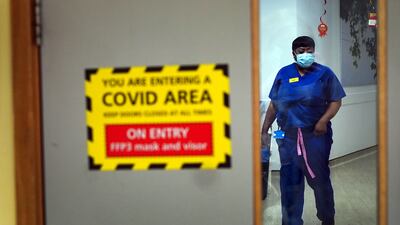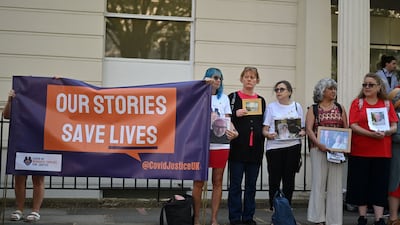The UK lacks a proper information about a potential resurgence of Covid this autumn, health experts have said.
Cases of the virus have been rising with a variant spreading across the country already accounting for one in seven new cases.
Christina Pagel, a professor of operational research at University College London, said the apparent new wave could begin to grow in September, The Guardian reported.
But she warned that the UK was lacking a proper warning system after the ending of many community surveillance studies tracking infection levels.
Prof Pagel called for the reintroduction of a nationwide infection survey published by the Office for National Statistics for autumn and winter, as well as expanding it to cover flu and respiratory syncytial virus (RSV).
RSV was virtually unheard of among the public before the Covid pandemic but case numbers are surging, prompting some authorities to introduce emergency measures.
“What worries me most is if we get a repeat of the last winter NHS crisis this winter again, with Covid, flu and RSV all hitting around the same time,” said Prof Pagel. “We are definitely flying near blind.”
Her concern is shared by Prof Rowland Kao, an epidemiologist at the University of Edinburgh.
“With seasonal flu, we have of course a certain amount of predictability with the many years of data,” he said.
“However, with Covid, now that we don’t have those multiple data streams to rely on, it’s harder to say what is happening.”
Prof Steven Riley, the UK Health Security Agency's director general of data, analytics and surveillance, said: “We continue to monitor the threat posed by Covid-19 through our range of surveillance systems and genomics capabilities, which report on infection rates, hospitalisations and the risks posed by new variants.”
Meanwhile, the latest data from the UKHSA shows that 5.4 per cent of tests on people with a respiratory illness in the last week were found to be Covid, up from 3.7 per cent the week before.
The hospital admission rate is now 1.97 per 100,000 population, an increase from 1.17 per 100,000 from the previous UKHSA report.
According to the agency, the new EG.5.1 variant, which is descended from Omicron, now accounts for 14.6 per cent of cases, making it the second most prevalent in the UK.
Prof Pagel said the increase was possibly being driven by waning immunity and other factors including rain keeping people inside.
She warned the pressures could increase with the arrival of autumn and people returning to school and work.
“We might see the wave continue to grow, and grow faster, in September,” she said.
Dr Mary Ramsay, head of immunisation at the UKHSA, stressed that “overall levels of admission still remain extremely low” and there was not currently an increase in ICU admissions.
“We will continue to monitor these rates closely,” she said.








